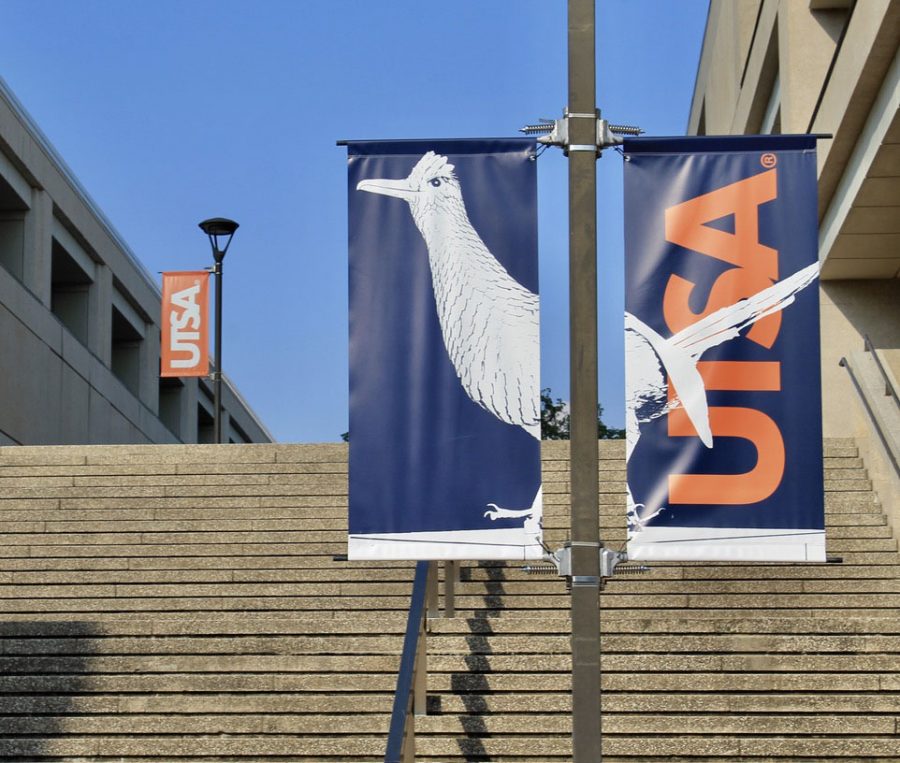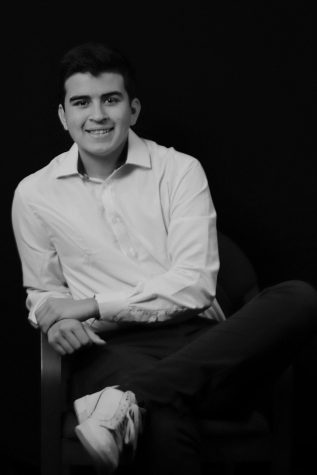UTSA professor receives funding to pursue COVID-19 drug discovery research
A banner hangs on campus. Doug Frantz’s research could lead to a drug that could reduce the severity of illness of COVID-19.
November 24, 2020
Doug Frantz is a UTSA Max and Minnie Tomerlin Voelcker Distinguished Professor of Chemistry and the recent recipient of a $198,592 grant from the San Antonio Medical Foundation (SAMF) for his work on a new approach for COVID-19 drug discovery with partners from UT Health San Antonio and the Southwest Research Institute.
Frantz explained how his training as an organic chemist has played into his work regarding COVID-19 drug discovery.
“I started out my professional career at Merck, a large pharmaceutical company in New Jersey, that really taught me the value of organic chemistry and its role in drug discovery,” Frantz said. “If you’re thinking about small-molecule drug discoveries like therapeutics that we’re all used to, it’s organic chemistry that plays that central role.”
The work that Frantz and his partners are doing attempts to block the SARS-CoV-2 virus — the virus that causes the COVID-19 disease — from binding to human lung host cells, which could minimize the impact COVID-19 would have on infected individuals or block it from causing infections entirely. Frantz acknowledged that scientists around the world are trying to find ways to do this but that there’s something different about the work he and his partners are doing.
“The great thing about what we have here in San Antonio is that we have a collection of small organic compounds that are novel to us here in San Antonio — in other words, these are compounds that nobody else in the world has access to,” Frantz said. “We believe that because of this unique resource that we have — this unique library, if you will — of compounds, that we will be able to find something potentially novel that blocks the ability of the SARS-CoV-2 virus to ever enter your cells through this very specific interaction on your cell surfaces to hopefully reduce the burden if not completely inhibit infections.”
Frantz’s work is still several years away from producing a drug that could be manufactured and distributed, but he stressed that his work will still be important when it is eventually completed.
“The great thing about this is that the ultimate metric for success for this project is not necessarily ultimately coming up with the next drug to treat COVID-19,” Frantz said. “If nothing else, we may develop some really nice molecular tools to help us understand how SARS-CoV-2 infects cells, why it infects certain cells and why it doesn’t; if the next pandemic comes along that is inspired by another coronavirus, the things we learn in this study may help us be even more efficient down the road for other coronaviruses.”









